Contact Us in the UK
- Phone: 01302 811319
- Email:
- Mailing Address: 24 Elmfield Road, Hyde Park, Doncaster, South Yorkshire DN1 2BA
Contact Us in the US
- Phone: 202.468.4571
- Email:
- Mailing Address: PO Box 5188 Wheaton, IL 60189-5188

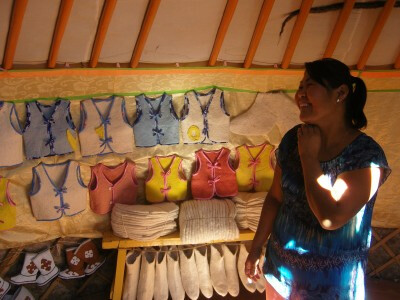
Getting treatment for your sick animals, your hair cut, utensils for your home, a café breakfast, new home fabrics from old clothing, bread in the shops, milk products, fresh vegetables on your table, winter clothes for your children, and trees planted to help avert desertification - all these got a little easier in the Gobi Desert after a series of small business seminars given last year by members of St Mary’s Old Harlow, UK.
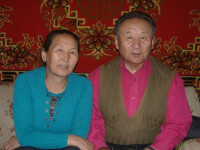
Taking part in the seminars were leaders and members of 25 new churches headed by Pastor Natsagdorj (right), in South Gobi Province, Mongolia. These businesses were begun or (in some cases) enhanced following the training which used materials first developed by Mike Clargo of Reconxile for use in Africa. The materials were translated and our ‘students’ now have the Mongolian version for reference and sharing with others. Some of the trainees have already employed or trained others with the skills they learned.
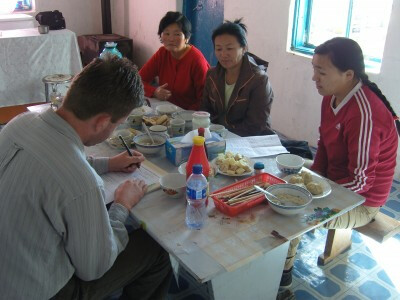
These are early days, and the businesses have faced the twin pressures of the global economic downturn and climate change - not an easy call, especially when you rank among the poorest people in the world. But in a culture where giving up is endemic, it was very encouraging to see how many of those trained 18 months ago had doggedly hung on to the tails of their business ideas, or tried new ones. Of the 20 or so businesses I surveyed across the vastly scattered communities of South Gobi, few have, on their own, lifted their owners above the state poverty line, defined here as the inability to afford a basic basket of food and non-food items, or roughly $1.25 a day.
But already there are some ‘success stories.’
One of the church planters, a 22-year old named Gantsetseg, used the materials to train a woman called Ayush who for a while has made a living with dairy products from her camel herd. As a result, Ayush went on to become local dairy business champion 2 years running, and hopes to compete nationally soon! In return for the dairy business’s increased success, Gantsetseg got a new ger (Mongol tent home) to house the church!
Others spoke of how the seminars had taught them how to manage their finances. This is a big issue in a culture where many fail to make the crucial distinction between business and personal income and costs, a mistake that can often lead to a business shutting its doors. That I had to revisit this several times during the tour illustrates the extent of the problem here.
Batu, who runs a car repair workshop in Dalanzadgad (the provincial capital), told how the seminars had helped him attract and retain customers. Oyunbaysgalan, a pharmacist, remarked that the seminars had taught her that as a Christian she needed to do more to support her employees, and take an interest in their lives outside of work. Soon after the seminars, they received a 30% pay rise! Meanwhile, a vet testified how the training had helped her, in her words, ‘to get organised.’ Just as well - she has 40,000 animals to look after! That number probably includes those pictured below.
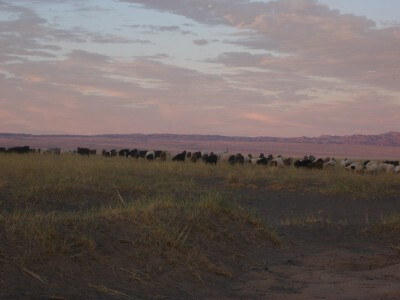
But in general, it has been a hard first year for the businesses, particularly the new ones, partly because there are so few models of good business practice here for people to learn from, and partly because the economic crisis has meant that credit for start-ups and expansion has been so hard to get hold of. It is ironic that while people in the ‘developed’ world were receiving huge bonuses in effect for creating negative value, people desperate to create value in their communities here in the developing world are being starved of the very finance that could help them do just that. If one needed more evidence of the injustice of the world’s financial architecture, it can easily be found among the scattered communities of the Gobi Desert.
Meanwhile, another challenge has focused the minds of many here: there has been no rain in South Gobi all summer. This means that the local economy, which depends directly or indirectly on herding animals, is in a fragile state. Vast areas of pasture land are bone dry, when they should be producing vegetation for the animals to eat. Unless the rain comes soon, many will not have the fat levels they need to survive the harsh winter, and scenes like the one below could be repeated hundreds, if not thousands of times over. The consequences could ripple through the economy, bringing a new challenge to our sapling businesses.
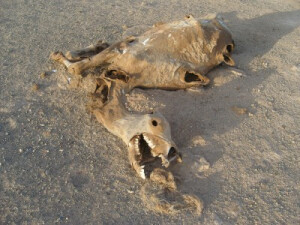
But the overall picture is one of hope amidst the challenges. For me, the most important aspect of what is going on is that local churches are at the forefront of efforts to lift individuals and communities out of poverty in one of the world’s last great wildernesses: local churches taking responsibility for mission and context-sensitive development. There’s a long way to go. But in a land where for historical and religious reasons, people have tended to accept their lot because ‘that’s how it is,’ churches are emerging as principal agents of change.
Several churches identified the need for a bakery in their area, but did not know how to take that idea forward. However, we identified a successful bakery business on our travels, and plans are now in hand to get these folks together to pool expertise and experience, and so to put more bread on the tables in South Gobi.
And Dawa (Natsagdorj’s wife) is thinking through how she can extend the basic business training to others in Dalanzadgad.
Getting people together, as both these initiatives require, is often difficult in South Gobi. Please pray that these meetings actually happen!
But as the churches step up to the challenge of change, so the resources they need also go up a gear. For instance, there is a great need for alternative sources of small start-up capital while the credit drought continues, as many of the new businesses have difficulty obtaining finance, either to start, or to grow. We now have a small venture capital fund in place in Dalanzadgad, but more may be needed in time.
And as with any new enterprise, people are important. Mongolian culture places a high value on presence and lived, observable examples. Also, for historical reasons, foreigners tend to be trusted more than locals. And with these things in mind, we agreed to pray about the possibility of a micro-enterprise specialist to be based in Dalanzadgad for an initial period of one year as part of the church there. The purpose would be to train and mentor those already in business or just starting out, and to help others to identify business opportunities and develop them. If this opportunity sounds like you, please contact us.
Comments
Login/Register to leave a comment